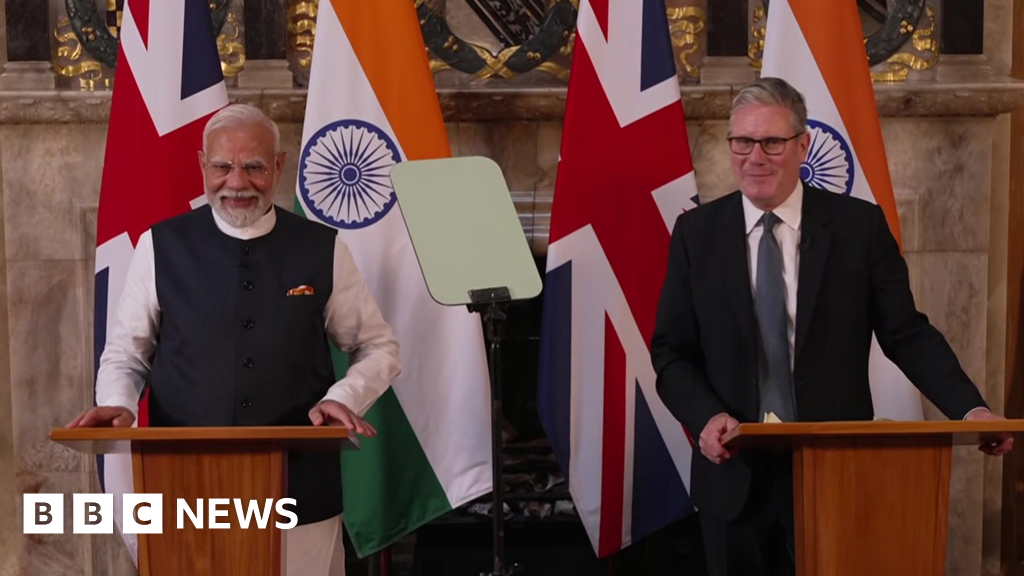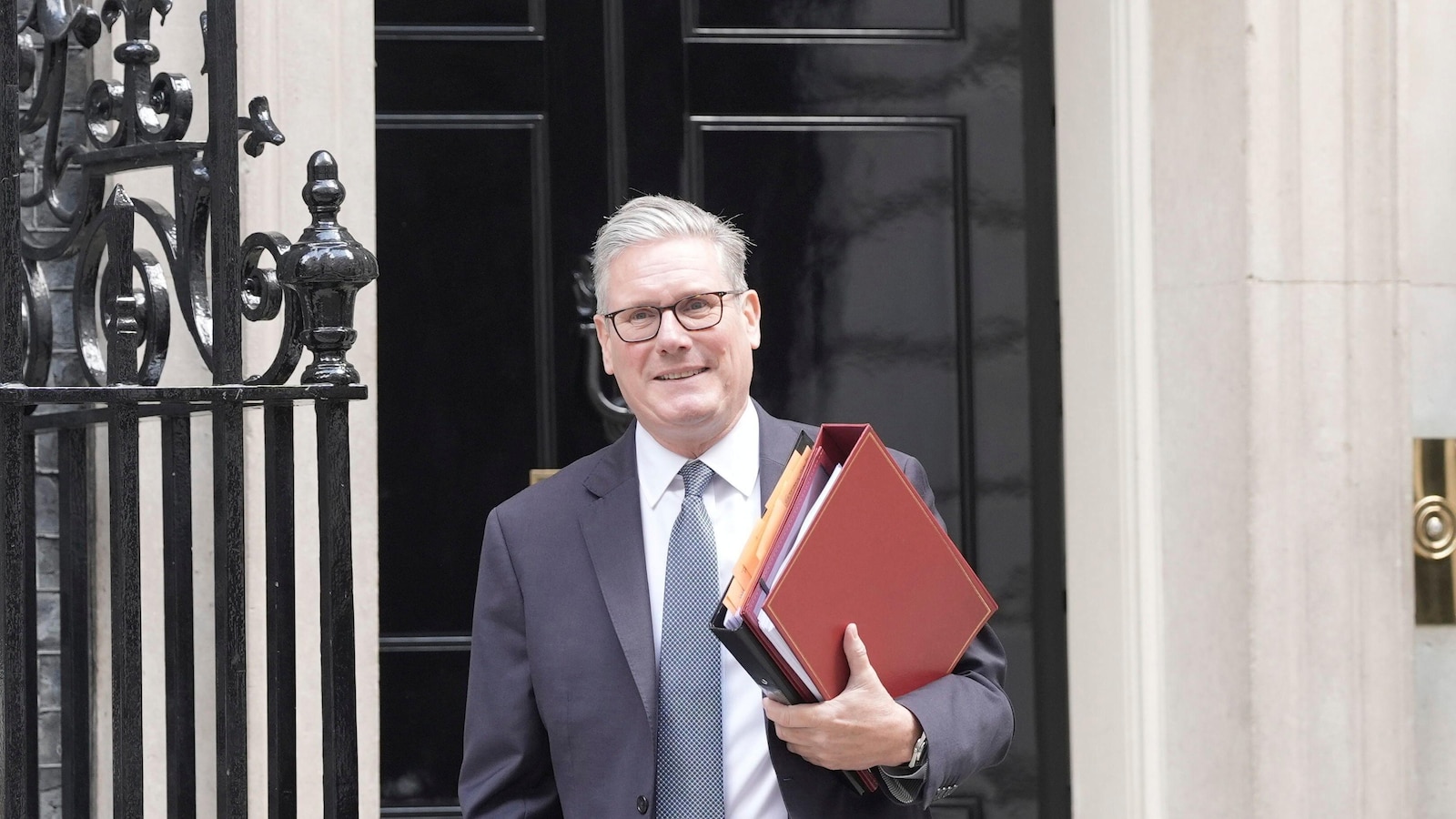UK and India Sign Landmark Trade Deal to Boost Bilateral Commerce
UK Prime Minister Sir Keir Starmer and Indian Prime Minister Narendra Modi signed a significant free trade deal in London. This agreement aims to substantially reduce tariffs on various goods, boosting bilateral trade and economic growth for both nations.
Subscribe to unlock this story
We really don't like cutting you off, but you've reached your monthly limit. At just $5/month, subscriptions are how we keep this project going. Start your free 7-day trial today!
Get StartedHave an account? Sign in
Overview
- UK Prime Minister Sir Keir Starmer and Indian Prime Minister Narendra Modi officially signed a landmark free trade deal during Modi's visit to London, solidifying economic ties between the two nations.
- The agreement significantly reduces India's average tariff on British goods from 15% to 3%, while also halving whisky and gin tariffs from 150% to 75%, with further reductions planned.
- Automotive tariffs, previously over 100%, will be cut to 10% under a quota, and 99% of Indian exports will be exempt from import duties, fostering broader market access.
- This comprehensive trade deal covers a wide range of products, including Scotch whisky, English gin, Indian food, spices, cars, textiles, and jewelry, benefiting diverse industries.
- The deal is projected to increase annual bilateral trade by A 25.5 billion from 2040 and add nearly A 5 billion annually to the British economy, signifying substantial long-term economic benefits.
Report issue

Read both sides in 5 minutes each day
Analysis
Center-leaning sources cover the story neutrally, focusing on factual details of the uk-india trade deal. they present information from both countries regarding the deal's benefits and provide historical context without using loaded language or emphasizing a particular political angle. the reporting remains objective, detailing the agreement's terms and economic projections.
Articles (3)
Center (2)
FAQ
The deal significantly reduces tariffs on numerous products. India's average tariff on British goods will drop from 15% to 3%. Tariffs on Scotch whisky and English gin will be halved from 150% to 75%, with plans to reduce further to about 40% within a decade. Automotive tariffs will be cut from over 100% to 10% with quota restrictions. The UK will eliminate duties on 99% of Indian exports, including textiles, leather, gems and jewellery, medical devices, and agricultural products.
The trade agreement is projected to increase annual bilateral trade to $120 billion by 2030, effectively doubling existing trade volumes. By 2040, annual trade is forecasted to grow by $25.5 billion, and the UK economy is expected to gain nearly $5 billion annually from the deal. The UK's GDP may increase by approximately £4.8 billion ($6.5 billion) annually due to the deal.
Beyond tariff reductions, the agreement facilitates the movement of professionals such as yoga instructors, musicians, chefs, business visitors, investors, and intra-corporate transferees along with their dependents who have work rights. It also addresses government procurement, innovation, intellectual property rights, and includes a social security agreement to avoid duplicate contributions by Indian professionals temporarily working in the UK.
The agreement reduces India's tariffs on automobiles from over 100% to 10%, subject to quota restrictions, potentially benefiting UK car exporters. For textiles, the UK will eliminate import duties on Indian textile products, boosting India's clothing industry and expanding export opportunities for associated sectors such as gems, jewellery, and auto parts.
History
- This story does not have any previous versions.


